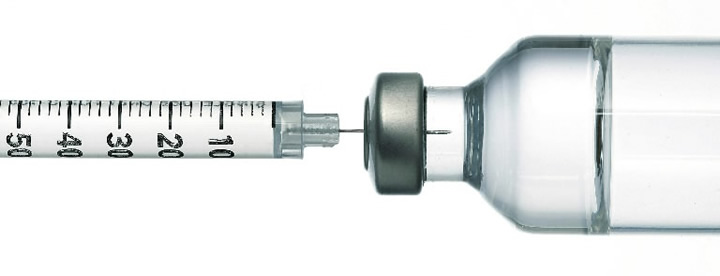Coffee, Caffeine and Type 2 Diabetes

There has been extensive research into whether consuming coffee (caffeine) is safe for those with type 2 diabetes as well as whether or not coffee could help prevent diabetes.
With the ever rising population of people suffering with type 2 diabetes, it’s good to hear that the diabetic or potential diabetic has a friend in coffee.
A healthy diet, low in sugar and refined carbs, is still the number one dietary measure to treat or reduce the risk for diabetes. Most research shows that coffee can be part of a diet that’s designed to prevent, treat, and/or possibly reverse type 2 diabetes.
Type 2 Diabetes and Coffee Research Studies
- A study published by the American Diabetes Association showed that those who drink coffee have lower sugar and insulin levels. It also appears that regular coffee is better than decaffeinated, so coffee could even prevent the onset of type 2 diabetes.15 overweight but otherwise healthy men were given either decaf coffee, a placebo, or the chemicals chlorogenic acid and trigonelline dissolved in water, which are two of the main antioxidants in coffee. The participants’ glucose and insulin levels were checked after consumption of each throughout the trial period. The only sample that showed lowered sugar and insulin levels was the chlorogenic acid and trigonelline solution group. Src.
- Another study analyzed much the latest research concerning diabetes and coffee consumption and was conducted by Harvard’s Dr. Frank Hu. His team found that the risk of type II diabetes decreased by 9% for each daily cup of coffee consumed. Decaf coffee decreased risk by 6% per cup. Src.
- An 11 year study looked at the diabetes and coffee risk association in postmenopausal women. They found that women who consumed 6 cups of coffee had a 22% lower risk of developing type 2 diabetes. Src.
- An 18 year Swedish study also showed a greater degree of decreased risk among women who consume the most cups of coffee daily. The Swedes are one of the highest coffee consumers in the world. Src.
- “Nineteen of 22 epidemiological studies concluded that long-term consumption of coffee, both caffeinated and decaffeinated, can reduce the risk of type 2 diabetes, but several investigators have warned that the caffeine in caffeinated coffee can impair glucose metabolism” from Diabetes Journals.
- The newer study is from the Harvard School of Public Health and it showed that type 2 diabetes risk decreases with every cup of coffee consumed. People who increased their coffee consumption by one cup saw an 11% decreased risk of type 2 diabetes. However, those that decreased their coffee consumption by one cup saw a 17% increase in risk. Src.
- Yet another study out of Denmark showed that coffee consumption doesn’t increase type 2 diabetes risk nor obesity risk for even the staunchest of coffee drinkers. 93,000 people’s coffee habits were analyzed for the study and there was no association between coffee consumption obesity, and diabetes. The study.
Decaf Coffee Not as Helpful
 Although, caffeinated coffee does seem to offer the most protection, it isn’t likely due to the caffeine. Coffee is actually rich in antioxidants.
Although, caffeinated coffee does seem to offer the most protection, it isn’t likely due to the caffeine. Coffee is actually rich in antioxidants.
In the decaffeination process these antioxidants are also removed to much lower concentrations along with the caffeine.
This explains why the same results weren’t observed with the decaf samples. Therefore, it does seem to be best to have regular, full-test coffee that’s been un-messed around with if you want to experience less type 2 diabetes risk or help in treating this form of diabetes.
Caffeine Lowers Blood Glucose Levels During Exercise
Researchers found that when people with type 2 diabetes use caffeine prior to exercise it lowers their blood glucose levels more.
Study participants given 1 mg of caffeine per 1 kg of body weight had on average a 75 mg/dL increased drop in blood sugar compared with those who did not have the caffeine.
Good or Bad?
Good if you are trying to naturally lower your blood sugar with diet and exercise.
Bad if you are on insulin and in danger of your blood sugar dropping too low.
The Bottom Line?
This is good news for coffee drinkers or those that would be at risk of developing type 2 diabetes. You can drink all the coffee you want, but we would advise that you learn to drink it black to experience the full benefits. Also be sure to not go beyond established daily caffeine safe levels.
Adding sugar and creamer no doubt quickly reduces some of coffee’s type 2 diabetes protective benefits.
If you have diabetes always consult your physician before making any changes to your diet.

Get Help Quitting Caffeine
Reduce your caffeine intake without pain and discomfort.
Download our FREE ebookReferences
- Nordestgaard, A. T., Thomsen, M., & Nordestgaard, B. G. (2015). Coffee intake and risk of obesity, metabolic syndrome and type 2 diabetes: a Mendelian randomization study. International journal of epidemiology, dyv083.
- Rosengren, A., Dotevall, A., Wilhelmsen, L., Thelle, D., & Johansson, S. (2004). Coffee and incidence of diabetes in Swedish women: a prospective 18‐year follow‐up study. Journal of internal medicine, 255(1), 89-95.





